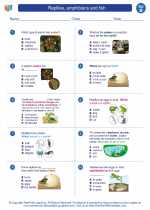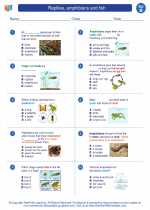Zygote: What is it?
A zygote is the initial cell formed when two gamete cells (sperm and egg) are joined through the process of fertilization. It is the first stage of a new organism's development and contains a full set of chromosomes, half from the mother and half from the father.
Study Guide
1. Formation
Explain the process of zygote formation, including the role of gametes and fertilization.
2. Chromosome Composition
Describe the genetic composition of a zygote, including the number and origin of chromosomes.
3. Development
Discuss the role of the zygote in the early stages of embryonic development and its transformation into a multicellular organism.
4. Importance
Explain the significance of the zygote stage in the life cycle of sexually reproducing organisms.
5. Additional Research
Research and present examples of different organisms and how their zygotes develop and grow into mature individuals.
[Zygote] Related Worksheets and Study Guides:
.◂Science Worksheets and Study Guides Second Grade. Reptiles, amphibians and fish

 Activity Lesson
Activity Lesson
 Worksheet/Answer key
Worksheet/Answer key
 Worksheet/Answer key
Worksheet/Answer key
 Worksheet/Answer key
Worksheet/Answer key
 Worksheet/Answer key
Worksheet/Answer key
 Vocabulary/Answer key
Vocabulary/Answer key
